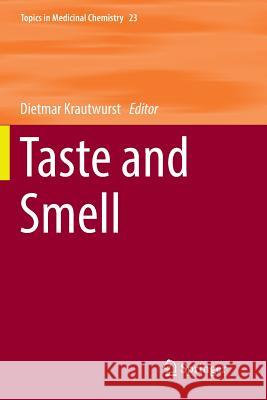Taste and Smell » książka
topmenu
Taste and Smell
ISBN-13: 9783319840499 / Angielski / Miękka / 2018 / 199 str.
Kategorie BISAC:
Wydawca:
Springer
Seria wydawnicza:
Język:
Angielski
ISBN-13:
9783319840499
Rok wydania:
2018
Wydanie:
Softcover Repri
Ilość stron:
199
Waga:
0.31 kg
Wymiary:
23.39 x 15.6 x 1.17
Oprawa:
Miękka
Wolumenów:
01
Dodatkowe informacje:
Wydanie ilustrowane











